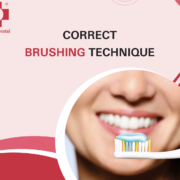Have you ever heard that clove oil is a natural painkiller for toothaches? Perhaps you have also heard of its benefits in fighting tooth decay, cavities, and plaque. But do you know how it works? Do you know the risks as well? Do you know where to get it and how to use it correctly? You see, this information will help you decide whether it is right for you. Keep reading to learn everything about Eugenol and its benefits.
The numbing effect is usually fully felt within five to 10 minutes. You can reapply the clove oil every two to three hours as needed provided you have your dentist consent. If you have more than one area of mouth pain after a dental procedure, you can add a few drops of eugenol to a teaspoon or coconut oil and swirl it in mouth to coat it.
Benefits of Clove Oil
Traditionally, clove oil has been used for easing digestive upset, relieving pain, and helping with respiratory conditions. Research has found that clove oil may have benefits for dental and topical applications, for treating infections, and even fighting cancer.
Clove is antiseptic. This means it prevents infections, which helps fight cavities and plaque.
It has a numbing effect. When applied to the gums, it numbs it temporarily, which makes it easier to clean the teeth and gums.

Eugenol is an analgesic. This means it fights pain and reduces swelling. Therefore, it is great for toothaches and other dental issues, such as gum disease.
It has anti-inflammatory properties. This is helpful for people who suffer from sensitive teeth.
Risks and Side Effects of Clove Oil
Even small amounts of clove oil can cause severe side effects such as seizures, liver damage, and fluid imbalances. Bleeding disorders: Clove oil contains a chemical called eugenol that seems to slow blood clotting. Taking clove oil might cause bleeding in people with bleeding disorders.
- It is not safe to use clove oil on children below the age of seven.
- Sometimes cause nausea or vomiting.
- It should not be used by pregnant women, as it can affect the baby.
- Eugenol can cause stains on teeth if not used properly.
- It can sometimes cause allergic reactions in certain people.
Where and how to use Eugenol Oil?
But before using it, speak to your dentist as it ideally should never be done. Incase the cavity has opened into nerve canal, it will in fact lead to worsening your situation.
- Start by putting on gloves to avoid staining your hands.
- Then, dip a cotton swab in the oil and press it against the gums.
- You can also use an applicator to drop a few drops of it on the gums.
- Let the oil stay on the gums and teeth for 10–15 minutes before rinsing it off.
It can also be used to fight dental issues. Here’s how:
For cavity prevention, use it as a natural toothpaste.
Plaque removal, swish the oil around the mouth for 5–10 minutes before spitting it out.

For gingivitis, use a cotton swab to dab a few drops of oil on the gums.
Let the oil stay on the gums for 10–15 minutes before rinsing it off.
Tips for Using Clove Oil
Always buy natural clove oil. The diluted and synthetic forms are not as useful.
Choose an oil that has a red or orange colour. These are natural and unadulterated oils.
Always read the instructions and warnings before using it.
Mix it with other natural ingredients for a more potent mixture. Remember, clove oil is not a cure-all. If used improperly, it can cause more harm than good. So, before you use it, make sure you know all the facts. With this information, you can decide whether it is right for you.
Conclusion
Clove oil is a natural painkiller that can help fight tooth decay, cavities, and plaque. It is antiseptic, analgesic, and has anti-inflammatory properties. However, it also has some risks and side effects. It is not safe to use clove oil on children below the age of seven. Sometimes cause nausea or vomiting. And should not be used by pregnant women, as it can affect the baby. It can cause stains on teeth if not used properly. Sometimes cause allergic reactions in certain people. With this information, you can decide whether it is right for you.






